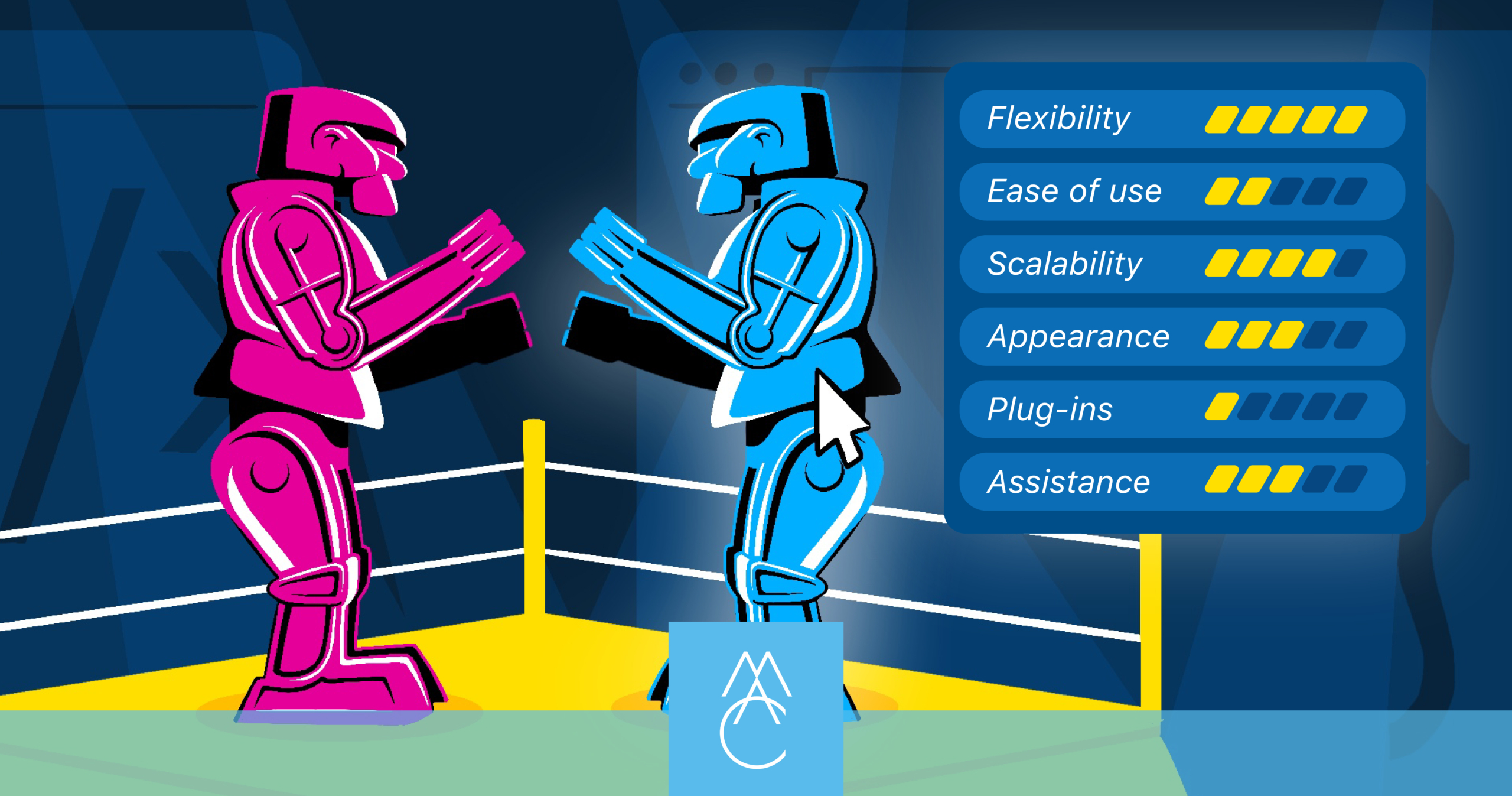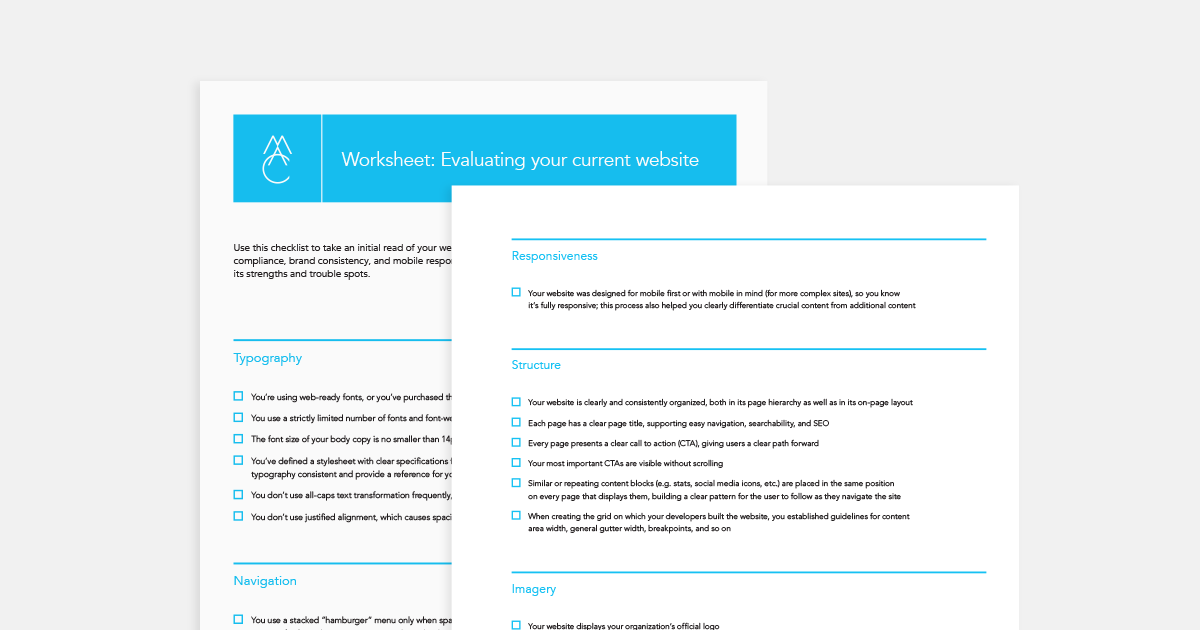
Drupal or WordPress? Choosing the Right CMS for Your Higher Ed Website
Your higher education institute’s website is more than just a digital billboard—it’s an indispensable interface for students, faculty, alumni, and the wider community. It must simultaneously play the roles of an information hub, a communication tool, a branding vehicle, and more—most importantly, your website is an application funnel that serves to attract your ideal students. When considering which content management system (CMS) you’ll use to power this critical asset, you have an overwhelming number of choices. So, in this article, we’ll delve into the strengths of the two leading open source CMS platforms—Drupal and WordPress—and explore why they may be the right choice for different kinds of higher education websites.
Drupal: The Powerhouse for Research Universities
Drupal is known for its robustness, scalability, and versatility, having carved a niche for itself among research institutions worldwide.
Research universities are unique in their needs. They generate myriad content types—scientific papers, academic articles, multimedia learning resources, event listings, and more. Drupal’s sophisticated capabilities related to content architecture make it an ideal fit for this demanding environment.
Another common challenge in research settings is catering to a variety of stakeholders. The user base at a research university is diverse—spanning students, educators, researchers, alumni, donors, etc.—and each may require differing access levels and interaction capabilities. Here, Drupal shines with its advanced user permissions and roles, providing administrators with granular control over the user experience.
In addition, research institutions often need to interact with a host of other systems—student databases, learning management systems, research portals, and the like. With its ‘modular architecture’ and API-first approach, Drupal handles these complex integrations without breaking a sweat, ensuring a seamless digital ecosystem.
On the other hand, for many colleges—especially those without a large dedicated IT team—Drupal can be a bear to manage and maintain. Frankly, it’s overkill for most purposes. For all but the most complex cases, we suggest the more popular choice: WordPress.
WordPress: The Open Source Choice for Colleges
WordPress, celebrated for its user-friendliness, ability to build custom themes with ease, and vast plugin ecosystem, presents an ideal solution for community colleges and smaller 4-year institutions for whom speed, intuitive editing experience, and cost-effectiveness are paramount.
WordPress’ intuitive editor allows for quick and easy website updating and maintenance, making it accessible to users with varying levels of technical expertise.
Budget constraints are an everyday reality for many community colleges and 4-year colleges. Luckily, WordPress allows for the simple integration of custom code solutions along with a vast array of free and affordable plugins to extend your website’s functionality while also protecting your budget.
Community colleges in particular often focus on local outreach and community engagement, and WordPress excels in this area with powerful SEO tools and simple social media integrations, helping marketing teams form stronger connections with prospective students and the wider community.
Lastly, as an open-source CMS, WordPress’s far-reaching global network of users and developers, generates a vast pool of expertise, resources, and troubleshooting, so help is always at hand. This active support can be invaluable, particularly for smaller institutions with limited IT resources.
Match Your Needs to the Right CMS
While both Drupal and WordPress are certainly formidable CMS platforms in their own right, your selection between them—or other proprietary CMS systems such as Omni CMS by Modern Campus—should be decided based upon your institution’s specific needs and available resources. For research-driven universities with diverse content needs and an array of complex integrations, Drupal’s advanced capabilities are a strong fit. For community colleges or smaller 4-year colleges looking for ease of editing, cost-effectiveness, versatility, and robust community engagement features, WordPress is often the ideal choice.
In the end, the right CMS is the one that best aligns with your school’s unique digital strategy. Whether it’s Drupal’s power and flexibility, or WordPress’ simplicity and extensive support community, both platforms offer compelling advantages that can help you navigate the digital landscape with confidence.
Need help deciding which is the right platform for your college? Contact Logan Hoffman at logan@madcollective.com or call 541.971.4113 ext. 711
More Resources
-

Article
Squarespace vs. WordPress: What’s best to build your website?As an award-winning web design and development firm, MAC has made a lot of websites over the years. Every client...
-

Article
How to build a higher ed website that achieves excellenceIt’s one thing to deliver an excellent student experience on campus; quite another to build an excellent website. Between us...
-

Worksheet
Evaluating your current websiteUse this checklist to evaluate your website’s user experience, ADA compliance, brand consistency, and mobile responsiveness, and to start identifying...




